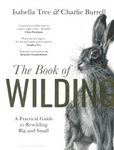"This fascinating study debunks false narratives about immigration and finds that, in common with other species, the urge to move is written in our genes [...] This book – a wandering narrative about why people wander – is likely to prove equally prophetic in the coming months and years, since it asks two questions that are already shaping our geopolitics: what causes human beings to migrate? And is such mass movement beneficial to more settled communities and nations?"
– Book of the Week, Observer
"Shah [tackles] with compassion and insight a deeply complex and challenging subject [...] Shah effectively shows that understanding human migration is fundamentally an intersectional problem, incorporating race, ethnicity, religion, gender, class, economic inequality, politics, nationalism, colonialism and health, not to mention genetics, evolution, ecology, geography, climate, climate change and even plate tectonics [...] Her work addresses issues of fundamental importance to the survival and well-being of us all"
– New York Times Book Review
"Rich with eclectic research and on-the-ground reporting, Shah's book presents us with a dazzlingly original picture of our relentlessly mobile species. At a moment when migrants face walls of hatred, this is a story threaded with joy and inspiration"
– Naomi Klein
"A deeply researched and counterintuitive history [...] [Anti-immigration] arguments may indeed be hollow but they spread their spores nonetheless: we need books such as this to expose them"
– Guardian
"Sonia Shah's life-affirming celebration of migration is an antidote to the naysayers [...] A hugely entertaining, life-affirming and hopeful hymn to the glorious adaptability of life on earth. Always, the argument is threaded through with delicious descriptions of the natural world and its endless mobility, from butterflies to hungry bears [...] [Shah's] luminous love for this changing world is surely a far better guide, as we face an uncertain future, than the dreary fear-mongering and lies of those she condemns [...] A rich measure of gaiety, humour, and hope."
– Scotsman
"A book that captivates on many levels [...] Part travel journal, part reportage, part investigative journalism, it's a work impeccably researched but heartfelt and driven by eloquent descriptive storytelling [...] Shah takes the reader on a fascinating kaleidoscopic historical and geographical journey [...] Fascinating, and extremely well written, this is a book of our times."
– Herald
"An examination of relocation in all its forms – human and wild – in the context of impending climate-related disruption. Shah delves into the origins of anti-immigrant rhetoric and unpicks the notion of a static world [...] It's a dazzling tour through 300 years of scientific history [...] Engrossing."
– Prospect Magazine
"Illuminating [...] This work's beguiling synergy of science, history, and contemporary politics is impressive enough, but it is this intuitive author's captivating narration that makes this such a bracingly intelligent and important title"
– Booklist
"Shah convincingly argues that politicians against immigration distort and misuse data to create unnecessary and cruel barriers, [and that] we must face the inevitable: our social, political and ecological world is changing substantially. The altered communities that result won't just be different, they'll often be better adapted to thrive in our warming world."
– Nature
"An incisive examination of migration, which she considers a phenomenon both biological and cultural [...] A scientifically sophisticated, well-considered contribution to the literature of movement and environmental change"
– Kirkus Reviews
"In this striking look at a planet on the move, Sonia Shah provides a bold new way of looking at the ecological and political turbulence of our time – a vision that is as full of hope as it is of understanding"
– Charles C. Mann, New York Times bestselling author of 1491





































